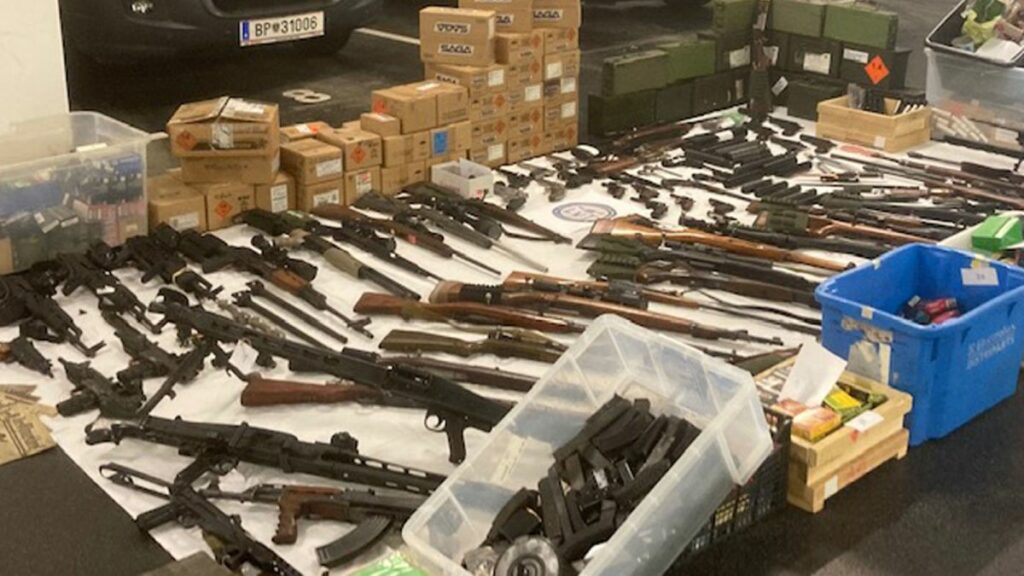What a staggering gun cache discovered in one suspected neo-Nazi’s house says about far-right extremism in Europe

Altogether some 50 weapons, including submachine guns and pump-action rifles, were seized. According to a Bernhard Weidinger, who studies the far right at the Documentation Archive of the Austrian Resistance in Vienna, says that the criminalization of Nazi ideology has ensured that it is neither particularly strong nor organized. “But what we do have is a very high frequency of weapons finds,” he told CNN.Neo-Nazi activity in Europe is frequently associated with biker gangs, organized crime and football fans. In Austria, a group called the Immortal follow the club Rapid Vienna, sometimes displaying the Reich War flag at matches. In Italy, fan groups known as Ultras adopt fascist slogans and monikers.Austrian neo-Nazi activists frequently connect with similar groups in Germany, according to authorities, because they perceive themselves as part of a greater German Reich. After the seizure of another arsenal of weapons late in 2020, Interior Minister Nehammer Sellner In both Germany and Austria, the more extreme factions speak of “Day X” — an apocalyptic fantasy when democratic institutions will collapse in a tide of violence and a neo-Nazi state will be born. It was a persistent theme on the Telegram channel of Nordkreuz, a Indeed, some FPO members have had an ambivalent relationship with the neo-Nazi fringe in Austria. In 2018, a senior official, Udo Landbauer, resigned his position because of a previous association with a group accused of being neo-Nazis. Landbauer denied knowing about anti-Semitic and neo-Nazi content in a book published by the group. The European far-right is a fractured environment, where political activism and calls to violence overlap, and groups grow and morph quickly. Much of it is online or underground, but it has been given new impetus — in both Europe and America — by lockdowns, vaccination mandates and an epidemic of conspiracy theories. Where it coalesces — at least in spirit — is on the issues of cultural identity and migration, which groups such as the Austrian IBO regard as an imminent existential threat. In June this year, the Austrian parliament passed a law banning the symbols of the IBO and another group, “The Austrians,” essentially conflating them with terror groups. The IBO responded on its website that: “Austria is thus partially and purposefully abolishing democracy for two patriotic groups. The autocratic censors will not get rid of us.”







